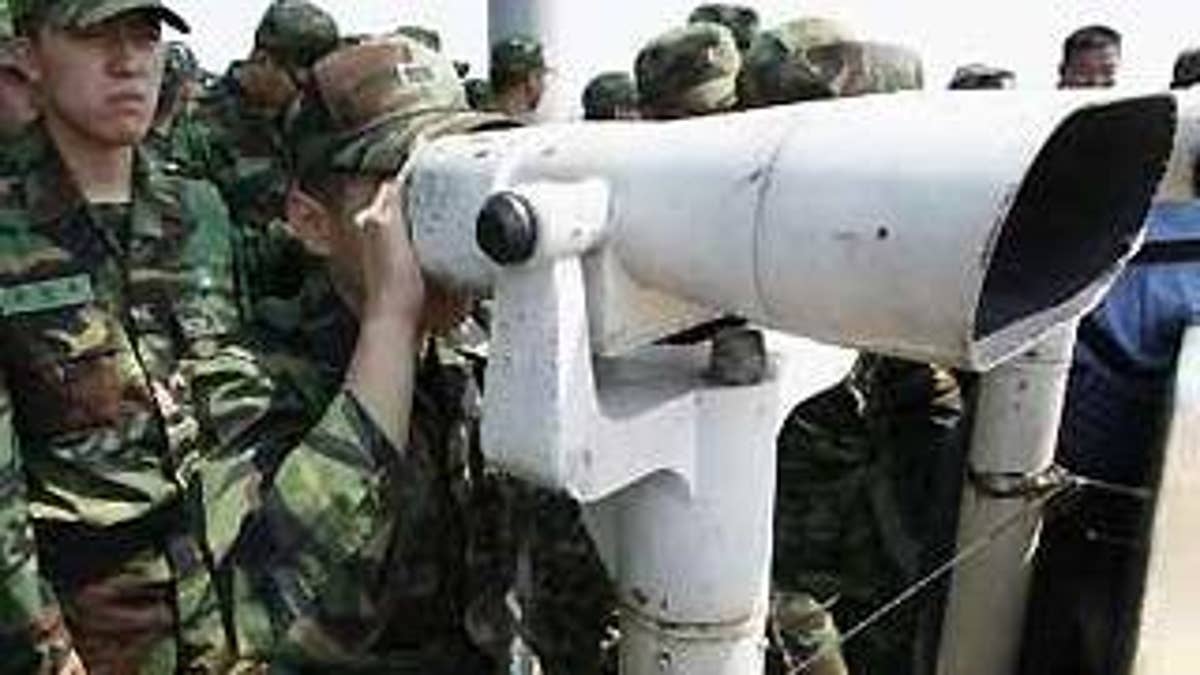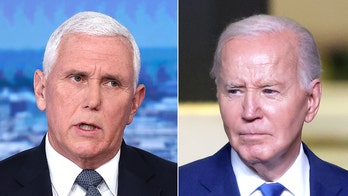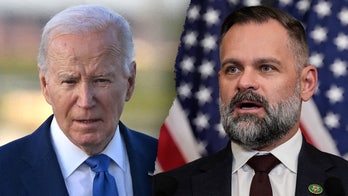
North Korea will have to pay a price for its aggressive actions, Secretary of State Hillary Clinton said Wednesday, and she urged Pyongyang to return to the six-party talks that it abandoned in favor of nuclear weapons.
"North Korea has made a choice, chosen to violate the specific language of the U.N. Security Council (Resolution) 1718. It has ignored the international community, abrogated the six-party talks and continues to act in a provocative and belligerent manner," Clinton said during remarks with Egyptian Foreign Minister Aboul Gheit.
"In the United Nations, as we speak, discussions are going on as to the consequences that North Korea will face coming out of the latest behavior, trying to rein in the North Koreans and get them back into a framework they have chosen where they fulfill their obligations," she said.
U.S. military and other Obama administration officials are calling much of Pyongyang's rhetoric "bluster" even as North Korea appears intent on restarting the Korean War, threatening a powerful military strike against South Korea and claiming it will no longer honor the 1953 Armistice that ended the conflict that divided the peninsula.
Clinton said the U.S. will continue to observe its obligations to South Korea and Japan, and it hopes North Korea will come back to the six-party talks.
In the White House, Press Secretary Robert Gibbs said the United States takes any threat seriously, but North Korea's actions are not new.
""This is the fifth time in 15 years that they've sought to nullify the armistice governing the Korean War," Gibbs said. "Again, I think their actions would be better focused on living up to their rights and obligations."
"North Korea continues to isolate itself. Threats and bluster will not get North Korea the attention and respect it craves," a senior White House official told FOX News earlier in the day.
One senior U.S. defense official characterized North Korea's threats as bluffing and bravado. The official noted that neither the U.S. military nor South Korea has changed its offensive posture in the region.
The Pentagon also noted no defensive or offensive changes in North Korea's military posture, and no ships have been launched as a result of recent actions by either side.
On Monday, North Korea said it had successfully conducted a nuclear test, demonstrating that the explosive power and level of control of its nuclear device have risen to a new level.
By all accounts, the test was larger than the country's first one in 2006. The size of the explosion, between a few kilotons to 20 kilotons, is still under debate, according to Russia's defense ministry.
On the same day, Pyongyang test-launched two short-range missiles from another East Coast launch pad. Three more short-range missiles were fired Tuesday -- from both the West Coast and the East Coast city of Hamhung.
The missile launch is the second time since the beginning of the year North Korea has tested its rocket capabilities. The last time the U.N. offered a tepid response that took days to craft. Gibbs said that is not the case this time.
"I think there's a frustration that the North Koreans don't seem to want to live up to the obligations that they've previously made to the international community. And I think the community has spoken out swiftly about that," Gibbs said noting the difficulty in getting the Security Council to pass some form of resolution.
"The unified international condemnation of this came fast and furious. But, again, I think -- and I think the vast majority of our allies strongly believe that what North Korea is doing is hurting -- is hurting North Korea."
On Wednesday, South Korean media reported that North Korea may be starting up its nuclear plant at Yongbyon, a site that was in the plutonium production business before the country agreed to shut down operations during the Bush administration.
In response, officials in Seoul, South Korea, announced they are joining the U.S.-led Proliferation Security Initiative (PSI) organized under U.N. Resolution 1718.
North Korea called that move a declaration of war, and the country's Central News Agency reported the regime no longer considers itself bound by the 1953 armistice. It also accused the United States, a signatory of the armistice, of "dragging" the South into the program through its "hostile policy" toward the North.
One defense official noted that South Korea has been part of a 90-nation PSI, which has interdicting ships on the lookout for the transport of North Korean nuclear materials and weapons, but the resolution is essentially toothless because other navies need the permission of the ship before boarding it. It is not a very effective tool, according to one U.S. defense official, and the North's reaction suggests more bluster.
The defense official said the short-range missile tests have not set off U.S. sensors because they are so short and tactical. The missiles are essentially being fired at target ranges and are not perceived as a threat. Instead, the missile tests are seen as attention-seeking, according to this official.
"When you constantly need suddenly to ratchet up the nastiness, you find yourself with fewer options not previously resorted to. So the armistice is one more available thing they can throw out the window as a demonstration of their macho," added a senior Obama administration official.
However, U.S. officials are taking very seriously the nuclear test. Samples of the air have been sent back to a Department of Energy testing facility in New Jersey. Results are not expected back until Friday.
North Korea has nearly 1 million active Army troops, which combined with reserves makes for 1.5 million soldiers.
FOX News' Major Garrett, Jennifer Griffin and James Rosen contributed to this report.




